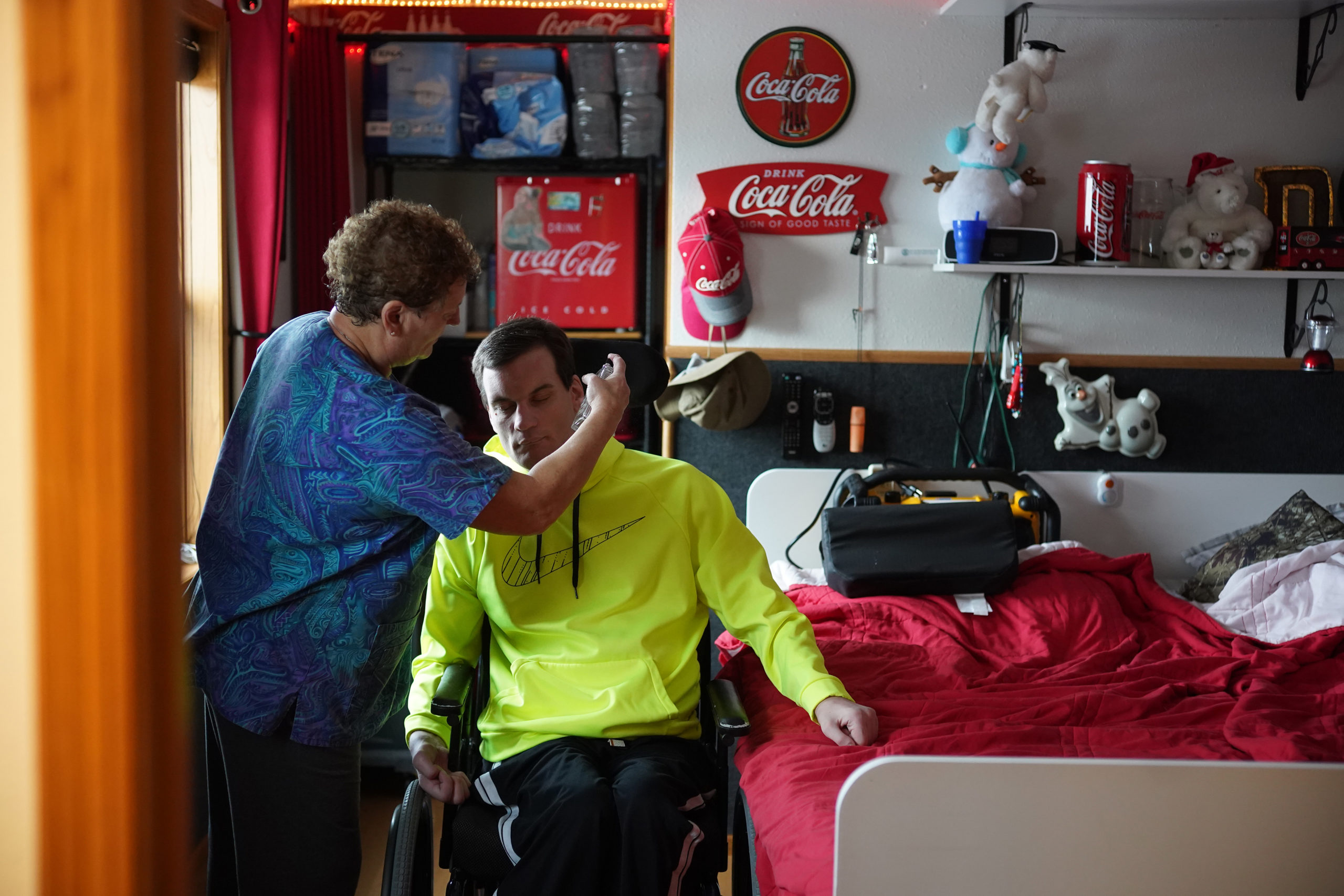How Wisconsin’s IRIS program “enables families to stay together.”
A decade ago, Lori Sabby-Lemke was working two jobs while caring alone for her teenage son Dustin, who was born with a severe form of cerebral palsy.
She was tired, lonely and broke.
Dustin’s only means of mobility — a rusted, wheelchair-accessible minivan with holes in the floorboards — sat idle in the weeds outside her mobile home because she had no money to fix it. Worse, her insurance company repeatedly denied requests for more supports to care for Dustin at home.
Then, in the fall of 2010, a social worker told Sabby-Lemke of a new state program that could change everything. It was called IRIS and it was designed to give people like Dustin power over their lives. For the first time, the family would control their own medical budget. Equipment and services that once seemed unattainable — such as a wheelchair-accessible bathroom and a working van — suddenly were within reach.
“It felt like we had emerged from the darkness and into the light,” Sabby-Lemke said.
Read the full story on IRIS (Include, Respect, I Self-Direct) from the Star Tribune here. FULL STORY
Photo Credit to Richard Tsong-Taatarii of Star Tribune

